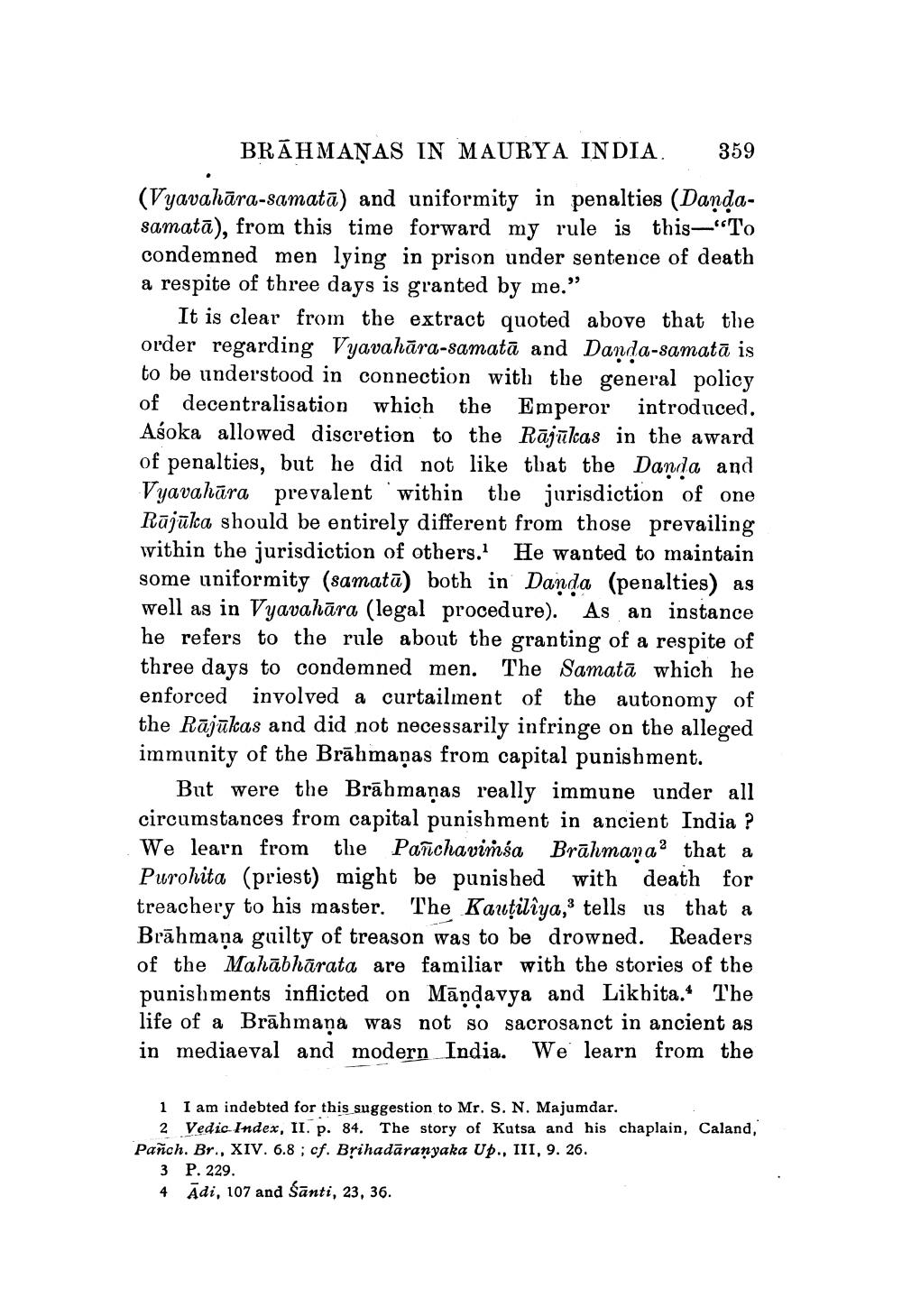________________
BRAHMANAS IN MAURYA INDIA. 359
(Vyavahāra-samatā) and uniformity in penalties (Dandasamata), from this time forward my rule is this-"To condemned men lying in prison under sentence of death a respite of three days is granted by me."
It is clear from the extract quoted above that the order regarding Vyavahara-samata and Danda-samatā is to be understood in connection with the general policy of decentralisation which the Emperor introduced. Aśoka allowed discretion to the Rajukas in the award of penalties, but he did not like that the Danda and Vyavahara prevalent within the jurisdiction of one Rujuka should be entirely different from those prevailing within the jurisdiction of others. He wanted to maintain some uniformity (samata) both in Danda (penalties) as well as in Vyavahara (legal procedure). As an instance he refers to the rule about the granting of a respite of three days to condemned men. The Samata which he enforced involved a curtailment of the autonomy of the Rajukas and did not necessarily infringe on the alleged immunity of the Brahmanas from capital punishment.
But were the Brāhmaṇas really immune under all circumstances from capital punishment in ancient India? We learn from the Panchavimsa Brahmana2 that a Purohita (priest) might be punished with death for treachery to his master. The Kauțiliya, tells us that a Brāhmaṇa guilty of treason was to be drowned. Readers of the Mahabharata are familiar with the stories of the
punishments inflicted on Mandavya and Likhita. The life of a Brāhmaṇa was not so sacrosanct in ancient as in mediaeval and modern India. We learn from the
1
I am indebted for this suggestion to Mr. S. N. Majumdar.
2 Vedic Index, II. p. 84. The story of Kutsa and his chaplain, Caland, Panch. Br., XIV. 6.8; cf. Brihadaranyaka Up., III, 9. 26.
3 P. 229.
4 Adi, 107 and Śānti, 23, 36.




